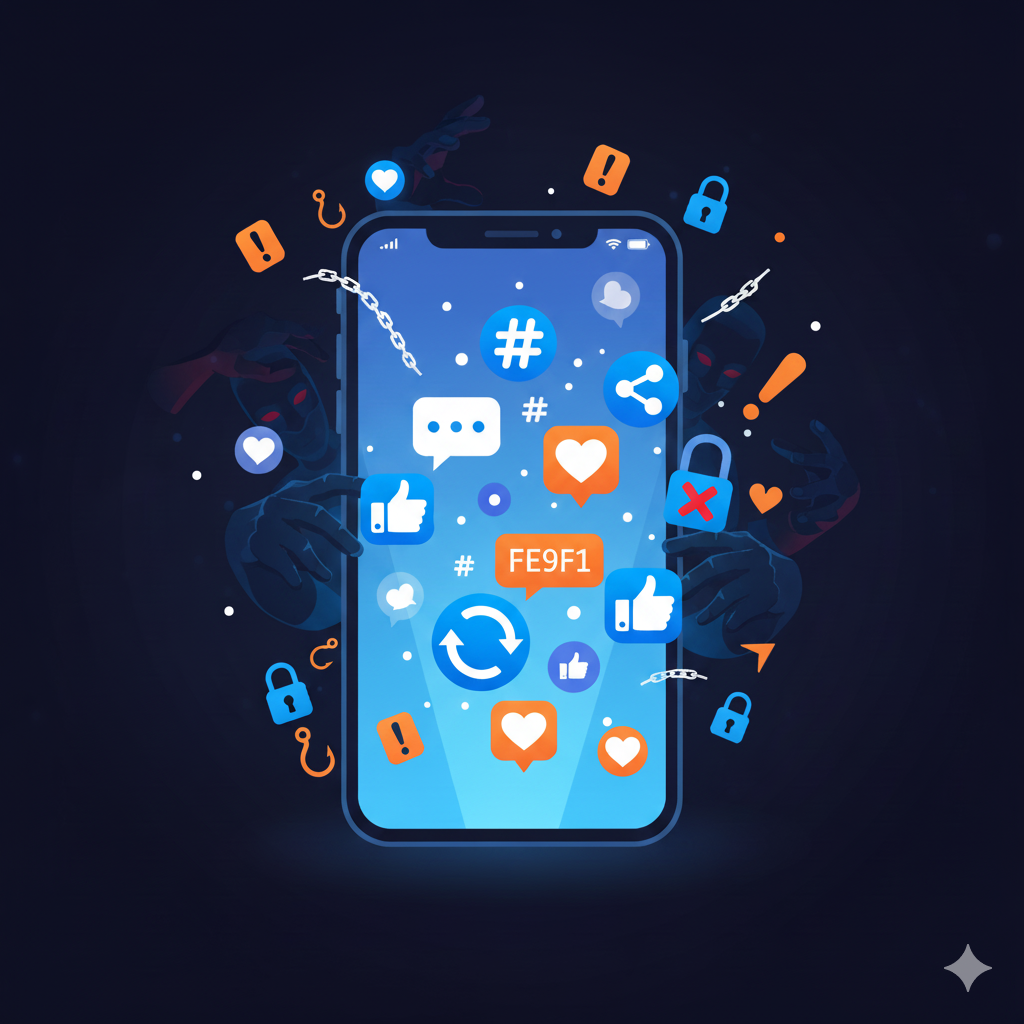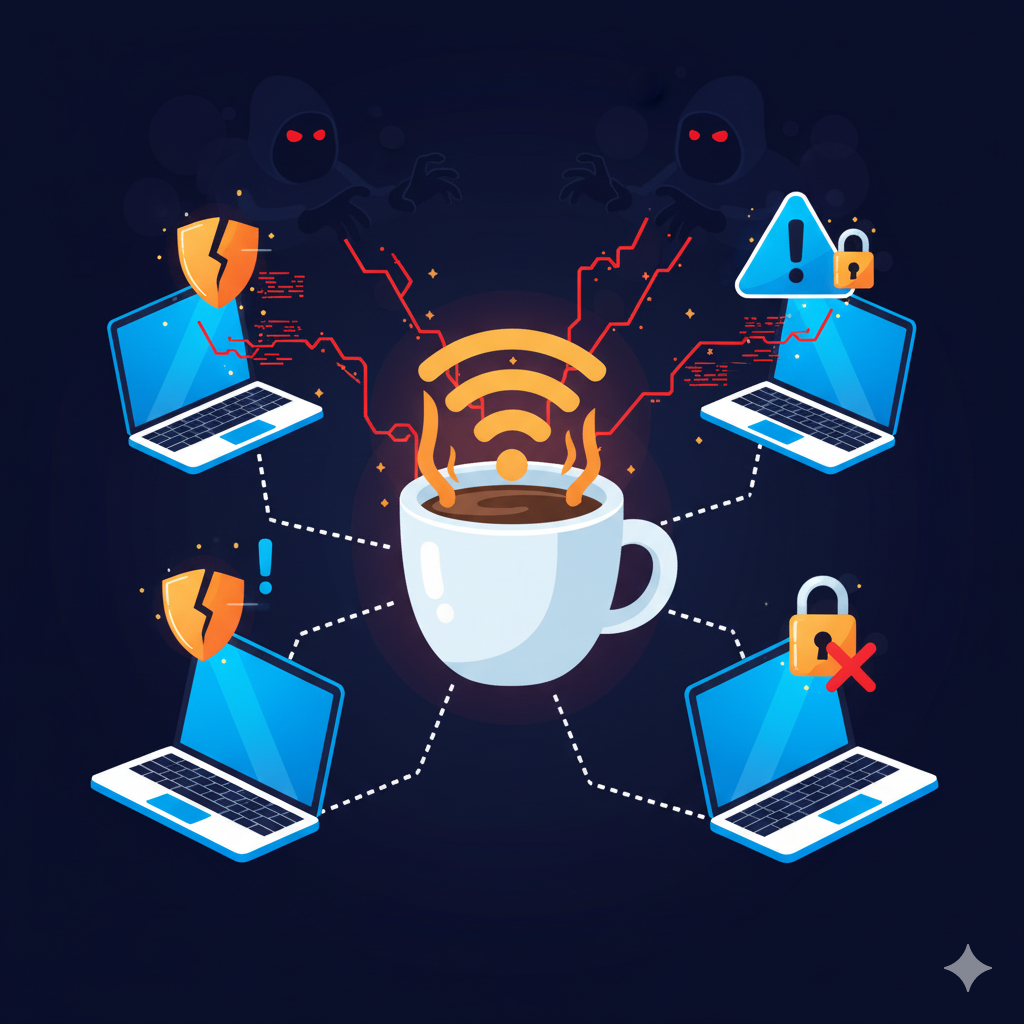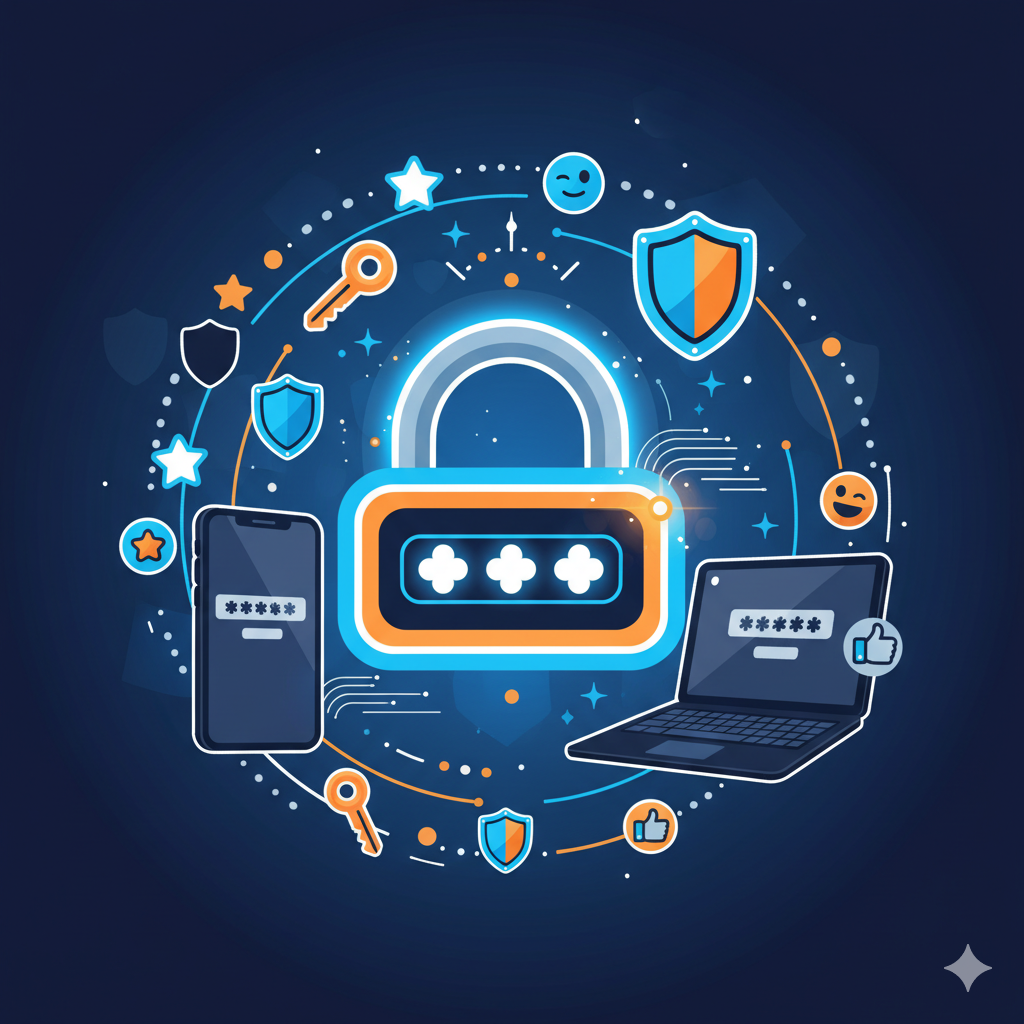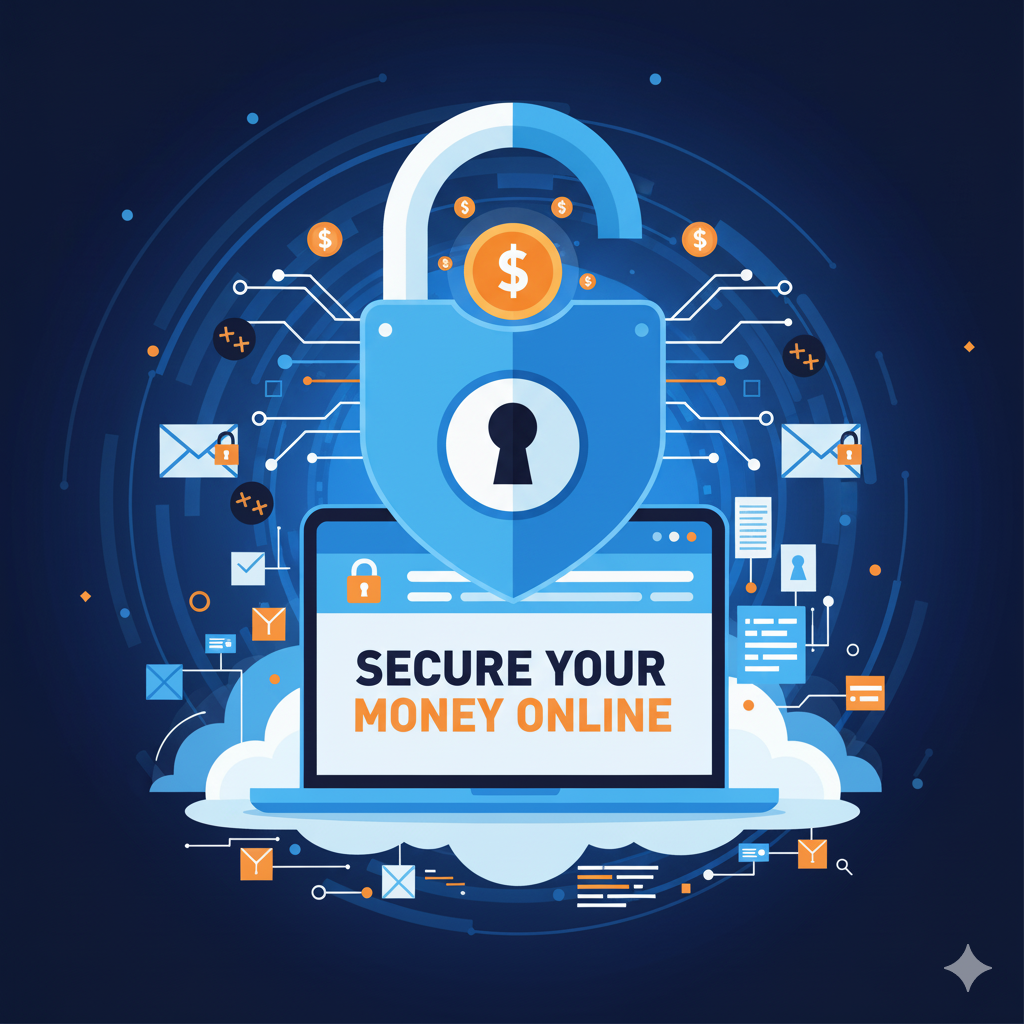Blog
Check out our latest blog posts
Social media cyberthreats
The risks of public Wi-Fi
Playing online safely
Staying safe in the digital age
Protecting your passwords
Protecting your taxes online
Cybersecurity for Youths: Staying Safe in the Digital Age
As young people spend more and more time online, it’s crucial to understand the importance of cybersecurity and how to stay safe in the digital age.
In today’s digital age, it’s more important than ever for youths to be aware of cybersecurity risks and how to protect themselves online. Here are some tips to help you stay safe:
Create strong passwords: Use a combination of letters, numbers and symbols to create a strong password that is difficult for others to guess. Avoid using personal information such as your name or birthdate.
Be cautious when clicking on links: Be wary of clicking on links from unknown sources or in suspicious emails. These links could lead to malicious websites or download harmful software onto your device.
Keep your software up-to-date: Regularly update your operating system and other software to ensure that you have the latest security patches and fixes.
Be careful what you share online: Think twice before sharing personal information such as your full name, address or phone number online. This information could be used by cybercriminals to steal your identity or commit other crimes.
Use privacy settings: Take advantage of privacy settings on social media and other online platforms to control who can see your posts and personal information.
By following these tips, you can help protect yourself from cyber threats and enjoy the many benefits of the digital world safely.
Cybersecurity for Youths: Protecting Your Taxes Online
Learn about the importance of cybersecurity for youths and how to protect your personal information while managing your taxes online.
Cybersecurity is an important topic for everyone, including youths. With the rise of technology and online transactions, it’s essential to be aware of potential threats and how to protect yourself. One area where cybersecurity is particularly important is when dealing with taxes.
There are several resources available to help youths learn about cybersecurity and how to stay safe online. For example, Get Cyber Safe is a national public awareness campaign created to inform Canadians about cyber security and the simple steps they can take to protect themselves online. The Canadian Centre for Cyber Security also provides expert advice, guidance, services and support on cyber security for Canadians.
When dealing with taxes, it’s important to ensure that your personal information is secure. This includes using strong passwords or passphrases for your accounts and being cautious when providing personal information online. By taking these simple steps, youths can help protect themselves against cyber threats while managing their taxes.
Online Gaming: How to Protect Yourself from Cyber Threats While Playing Online
As online gaming continues to grow in popularity, it’s important to be aware of the potential cyber threats and take steps to protect yourself while playing
Online gaming can be a fun and exciting way to connect with others and pass the time. However, it’s important to be aware of the potential cyber threats that come with playing games online. Hackers and scammers may try to steal your personal information or infect your device with malware.
To protect yourself while gaming online, it’s important to use strong and unique passwords for all of your accounts. Be cautious when clicking on links or downloading files from unknown sources. And always keep your antivirus software up-to-date to protect against malware.
By following these simple tips, you can enjoy online gaming while keeping yourself safe from cyber threats.
Cybersecurity for Youths: Protect your Passwords!
In today’s digital age, it’s important to keep your personal information safe and secure.
One of the best ways to do this is by using strong passwords. Passwords are the keys to your online identity, and if they fall into the wrong hands, they can be used to steal your identity, your money, and your reputation.
Here are some tips to help you create strong passwords and keep them safe:
Use a combination of letters, numbers, and symbols.
Use a different password for each account.
Change your passwords regularly.
Don’t share your passwords with anyone.
Use two-factor authentication whenever possible.
By following these tips, you can help protect yourself from cyber criminals and keep your personal information safe and secure.
The Risks of Public Wi-Fi: How to Stay Safe When Connecting on Your Phone
While public Wi-Fi can be convenient, it’s important to understand the potential risks and take steps to protect your personal information when connecting on your phone.
Public Wi-Fi networks can be convenient when you’re on the go and need to connect to the internet. However, these networks can also pose risks to your personal information and security. Cybercriminals may set up fake Wi-Fi networks or intercept data transmitted over public networks.
To stay safe when connecting to public Wi-Fi on your phone, it’s important to take a few precautions. First, make sure you’re connecting to a legitimate network by verifying its name with an employee or signage. Avoid accessing sensitive information such as bank accounts or credit card numbers while connected to public Wi-Fi.








Phishing for Info - Cyber Threats on Social Media
Now more than ever, we’re a world that operates nonstop in the cyberspace. Being as interconnected with technology and networks as we are, we are able to experience the good, the bad, and the downright ugly aspects of technology in all its forms. Despite having grown up immersed in the cyberspace, Gen Z are just as vulnerable to the security/privacy issues within this field as we assume our parents and grandparents to be, maybe even more so. At this point, we are all so reliant on technology that it is likely we will face some serious security dangers as we navigate the cyberspace.
Social media has seemingly become an all-you-can-eat buffet for bad actors to obtain access to our personal information. If I had a nickel for every time I’ve received an Instagram DM from one of my followers or friends asking me for some sort of favour or saying that they want to help me with X opportunity – each of which requires me to reveal some personal information or click a link – I would be able to pay off my student loans. These scams are usually pretty obvious to spot, but there’s a real issue here evident in the sheer amount of my friends whose accounts have been compromised and perpetuate this cycle.
Even those of us who are well aware of the different types of scams coming at us occasionally get caught off guard in ways we were too arrogant to acknowledge. I’ll use myself as an example. One time, soon after starting a new job, I was contacted on my company email in which I was asked to look over some important new procedures and updates regarding scheduling within the business. There was a link attached, from which I assumed I would be redirected to our internal website going over all this important information in detail. Only instead, I was redirected to a page that informed me that our company was running a phishing scam awareness exercise that collected data on how many of their employees would click on one of these types of links. Of course, many employees did, but I had never in a million years thought that I’d ever be one to fall for something like that. Luckily, it was just a test, so nothing was compromised aside from my ego, but this could just as easily have been an actual security issue resulting in the theft of important company data.
If you’re still not convinced that even the best of us are susceptible to these potentially dangerous mistakes online, just think about how many people you know have clicked on sketchy links sent by their Facebook friends. We generally don’t conflate people we know as those we need to be on our guard with, and we don’t necessarily make the connection that it might not be our friends and family sending us the content. Another fun little anecdote while we’re on the topic of phishing in social media: a good friend of mine received a message on Facebook from one of his Facebook friends that read “Look who just died, I think you know him?” with a link to a site, and he just HAD to find out who had kicked the bucket. The link redirected him to a page asking him to input his Facebook credentials. He realized he made a dumb mistake immediately after inputting his password into the sketchy site and subsequently created a new password as a result. But many people who are as curious as my friend end up submitting their information to these fake websites without realizing it, and that’s how these messages get sent from their accounts to their friends’ lists to begin with. This all goes to show that almost all of us get caught off guard online, and scammers prey on us in our moments of weakness and curiosity.
Created by: Marisa Cerasoli, BTM student